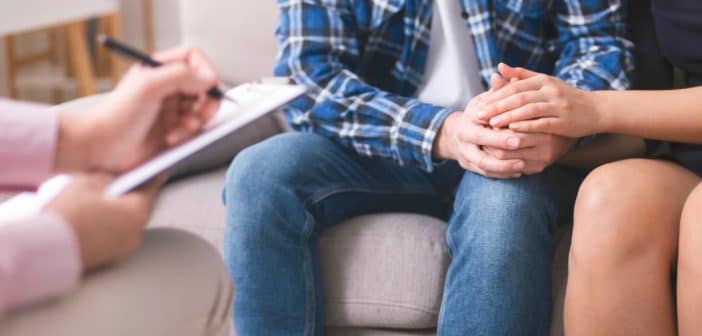 Addiction is a family disease. Watching a person you love struggle with substance abuse is grueling. If you live with them, you’re brought into the cycle of unpredictable or dangerous behavior brought about by substance use. Even if you live separately, the constant concern for your family member or friend’s wellbeing can take a toll.
Addiction is a family disease. Watching a person you love struggle with substance abuse is grueling. If you live with them, you’re brought into the cycle of unpredictable or dangerous behavior brought about by substance use. Even if you live separately, the constant concern for your family member or friend’s wellbeing can take a toll.
Just like it’s important for people trying to get sober to connect with their peers, it’s crucial that family members and friends connect with other people in their position.
“This helps family members navigate their way when dealing with an addict or alcoholic and it also provides a support system of others who have gone through the same thing,” says Racheal Doll, admissions coordinator at Asana Recovery, which offers detox, residential treatment and an outpatient program in Costa Mesa, California.
Family members of people with substance use disorder often feel isolated. Sometimes, a loved one’s illness can make it difficult to maintain relationships or schedules. Other times, embarrassment and shame cause people to withdraw from their communities. In these instances, connecting with other family members of people with addiction can be hugely empowering. It reinforces the truth: that substance use disorder can happen to anyone, and any family.
In addition, family and friend support groups can help people learn about the logistics of dealing with a person with substance use disorder. Family members often wonder if they should set boundaries, and worry that if they do their loved one will spiral. They cope with trying to balance being loving with supportive, without being enabling. Many family members need to confront their own codependent behavior. Talking to other friends and family members can help you understand how best to act in your situation, and how to regain some control in an otherwise unpredictable situation.
Doll has seen the importance of fellowship on both sides of addiction. She was once the person living with active addiction. Now, after many years in recovery, she is watching a loved one struggle with substance use disorder.
“The two really do go hand in hand,” she said. “You can be just as addicted to people as you can drugs or alcohol.”
To help her understand how to cope, Doll decided to turn to Alanon, a 12-step program for people who love someone with addiction.
“Alanon has taught me to set healthy boundaries and most importantly that I don’t have to do this alone,” she said.
Other groups like Nar-Anon, SMART Recovery Family & Friends, and Adult Children of Alcoholics also help loved ones address the impact of addition in their lives.
These programs can help people learn skills to make their lives more manageable, even if their loved ones are not yet ready to get into recovery.
“Much like AA or NA, Alanon teaches coping skills and helps the sufferer develop tools to be able to deal with the unpredictability and emotional strain when dealing with someone in active addiction,” Doll says.
Doll urges anyone living with someone in active addiction to take advantage of a friends and family support program today.
“Is it important that family members know they can reach out for help even if their loved one isn’t ready to,” she said. “Even if the prospect is unwilling to get help, Alanon can help family and friends learn to set healthy boundaries and how to help instead of enabling.”
If your loved one is sober, you can still attend groups, to stay connected with peers, learn how to support them in recovery, and show that hope is real.
“Just like recovery from the addiction is a life long journey, so is the relationship with the family,” Doll said. “Staying connected to a support system like Alanon will only help. The disease of addiction is a family disease. We stay sick together but we can also get better together.”
Asana Recovery offers residential and outpatient treatment in Costa Mesa, California. Learn more by calling 949-438-4504.
Sponsored DISCLAIMER: This is a paid advertisement for California Behavioral Health, LLC, a CA licensed substance abuse treatment provider and not a service provided by The Fix. Calls to this number are answered by CBH, free and without obligation to the consumer. No one who answers the call receives a fee based upon the consumer’s choice to enter treatment. For additional info on other treatment providers and options visit www.samhsa.gov.




